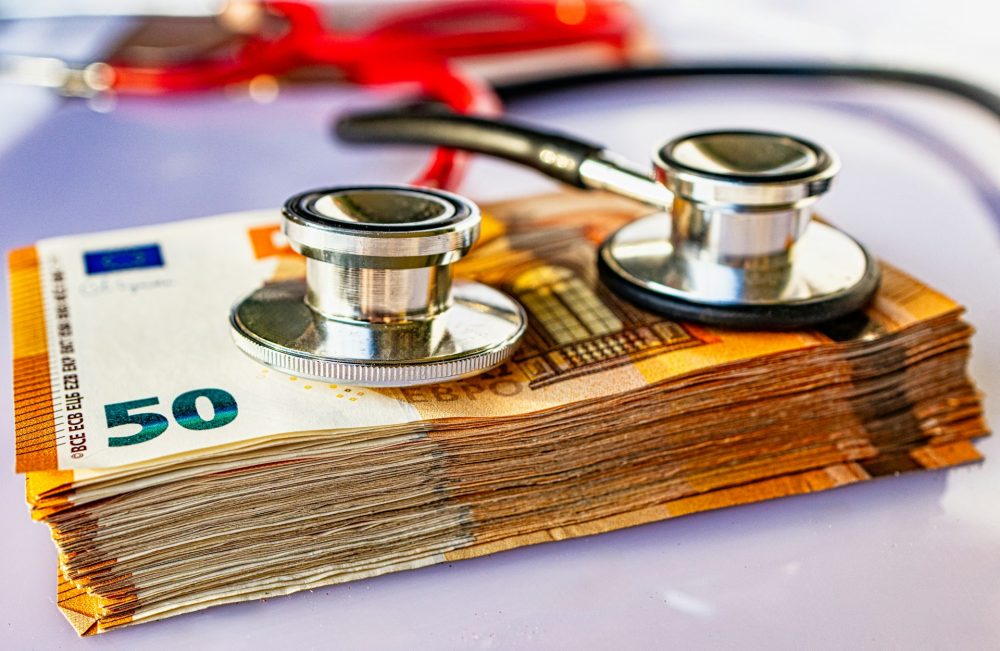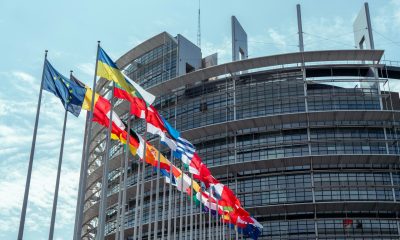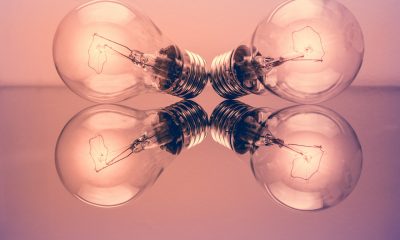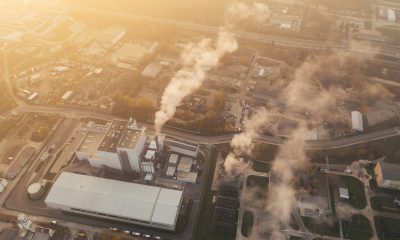Impact Investing
Bayer Invests €569 Million in Spain to Drive Sustainability, Innovation, and Social Impact
Since reformulating its sustainability goals in 2019, Bayer has invested €569 million in Spain to advance regenerative agriculture, healthcare decarbonization, and innovation. The company cut greenhouse gas emissions by up to 68%, began decarbonizing its La Felguera plant, improved waste management, promoted biodiversity, and expanded STEM education and social action programs to foster sustainable progress.

In 2019, Bayer reformulated its sustainability goals. Since then, the company has invested €569 million in Spain, aimed at promoting a regenerative agriculture model, as well asdeveloping innovation in healthcare, decarbonizingits healthcare activitiesand throughout the value chain.
All of this, the company asserts, has been crucial to the organization’s progress in this area and an essential part of the transformation of its areas of activity. This is reflected in the updated national impact report, which compiles all the progress made in environmental protection and also those related to the promotion of social and educational action within the organization.
By compiling these achievements in the report, Bayer also seeks to strategically link its commitment to sustainability to its efforts in innovation, competitiveness, talent, and strengthening the country’s scientific potential.
Part of the investment aimed at improving sustainability has been allocated to developing innovation in the areas in which the company operates, as well as to improving its infrastructure. This has also increased the company’s R&D production capacity and the digitalization of processes to become more efficient and reduce its environmental impact.
The updated impact report reflects the milestones achieved since Bayer reformulated its sustainability goals in 2019
Jordi Sánchez, CEO of Bayer in Spain and Portugal, is pleased with this progress. “ I can’t think of a better way to celebrate our 125th anniversary in the country than with this progress, which validates our commitment to the present, but also to the future,” says Sánchez . He adds, “The transformation of our business is key to the advancement of all and the necessary protection of the planet’s natural resources.”
Therefore, for Sánchez, “this report now being presented not only documents our progress, but also inspires a path forward, highlighting the opportunities that arise when we evolve together, boosting strategic competitiveness and the country’s capacity to contribute to innovation in this regard as well.”
Sustainability Advances in Data Bayer’s report reveals several insights that reflect these advances. Among them, the company in Spain has managed to reduce its absolute greenhouse gas emissions by 38% since 2019, and by 68% if only its own activity is evaluated.
One of the company’s milestones is the announcement in 2024 that the decarbonization of the La Felguera plant in Asturias would be achieved by 2026. This plant is highly relevant to Bayer’s operations as it produces the company’s acetylsalicylic acid for the entire world. It is worth noting that this facility is the first in the sector to achieve this feat in the country, thanks in part to the company’s agreement with Iberdrola to develop the necessary innovation to cover the facility’s steam needs with 100% renewable energy.
Specifically, the facility consists of an innovative thermal storage system that will transform 100% renewable electricity from an adjacent self-consumption facility and its various renewable plants into the steam Bayer needs to operate. This lays the foundation for the first heat purchase agreement (HPA) of its kind in Spain. This achievement has also been supported by the Just Transition Institute and the decarbonization PERTE (Spanish Association of Decarbonization Workers), which has contributed €17 million to develop the project.
The company highlights that the Felguera plant (Asturias) began its decarbonization process in 2024
Another notable advance in this Bayer development has been the recent certification of the first methodology for measuring the carbon footprint of pharmaceutical products, validated by TÜV Rheinland under the ISO 14067 standard. This methodology makes it possible to measure the entire supply chain and the CO2 emissions generated in the production process. The Asturian center in La Felguera also participated in this achievement.
Furthermore, in order to complete the value chain and lifecycle analysis of its products, the company has signed a selective waste management agreement with the Llorens Group. This agreement will recover all residual materials for reintroduction into production processes. This initiative has already begun to bear fruit, with more than 14 tons of waste managed using this new methodology in 2024 alone. A larger volume will be added over time.
Transformation of the agricultural model In this context of progress toward sustainability, regenerative agriculture can play a key role. Here, with the aim of helping to produce more food with fewer natural resources while reducing the environmental impact, the company stands as an agent contributing to this transformation thanks to its contributions in the research of new seeds, the digitalization of the activity, and support for farmers.
In this regard, the data reveals that in 2024 the company allocated €25 million to develop R&D activities at its southern centers, making a new corn cultivation system called Preceon available to farmers. This combines a new generation of short-stature corn hybrids with FieldView, a digital tool that helps improve crop yields and, in turn, optimizes resource management.
Bayer’s commitment to regenerative agriculture reinforces its commitment to advancing sustainability
The company also promotes various initiatives aimed at preserving biodiversity in different areas. One of these projects, called Dionisio, is carried out in collaboration with the ARAG-ASAJA agricultural association and the environmental NGO Grefa, which has been working for two years to achieve this goal by promoting good sustainable agricultural practices.
Another collaboration in this regard is the one Bayer is carrying out with Novamont to improve agricultural waste management through the development of compostable bioplastics. As part of this initiative, an experimental study was conducted in 2024 in the greenhouses of El Ejido, Almería, evaluating the performance of more than 1,300,000 linear meters of raffia and 180,000 paper clips made with the compostable bioplastic Mater-Bi. The results of this project are now available, showing that the materials meet all the necessary technical requirements and can also be processed with plant waste to generate high-quality compost that is free of microplastics.
Education and Social Action Beyond its environmental actions, Bayer also has several projects underway in other areas with social impact in Spain. These are organized around pillars such as strengthening specialized talent and promoting interest in science among new generations, as part of its commitment to sustainable progress.
Following this theme, Bayer has promoted educational programs such as Cuestión de Ciencia and Baylab, which aim to foster critical thinking, interest in STEM disciplines, and strengthen the link between science and society, seeking to bring knowledge to students, teachers, and educational communities across different parts of Spain.
Likewise, in terms of social action, in 2024 the corporation made donations totaling more than €225,000. And, with a focus on current events and taking into account the impact, an exceptional endowment of €100,000 is included for the recovery of those affected by the DANA.
In the context of social action, Bayer has training and volunteer programs and in 2024 allocated a budget for recovery after the DANA
In other areas, measures such as the corporate volunteer program stand out. In fact, in 2024 this effort was reinforced thanks to the approval of eight hours of paid annual leave for each employee. And evidence certifies its positive impact, as, in total, employees have dedicated more than 2,000 hours to social causes through initiatives such as GreenVolunteers for climate action, the donation of computer equipment to schools affected by the DANA, and an awareness-raising plan on unwanted loneliness in conjunction with the Sant Joan de Déu Foundation.
Thus, with all the actions Bayer organizes and promotes, both in sustainability and at the social level, they aim to contribute to a global transformation of the company in which social responsibility plays an increasingly central role.
__
(Featured image by Marek Studzinski via Unsplash)
DISCLAIMER: This article was written by a third party contributor and does not reflect the opinion of Born2Invest, its management, staff or its associates. Please review our disclaimer for more information.
This article may include forward-looking statements. These forward-looking statements generally are identified by the words “believe,” “project,” “estimate,” “become,” “plan,” “will,” and similar expressions. These forward-looking statements involve known and unknown risks as well as uncertainties, including those discussed in the following cautionary statements and elsewhere in this article and on this site. Although the Company may believe that its expectations are based on reasonable assumptions, the actual results that the Company may achieve may differ materially from any forward-looking statements, which reflect the opinions of the management of the Company only as of the date hereof. Additionally, please make sure to read these important disclosures.
First published in iSanidad. A third-party contributor translated and adapted the article from the original. In case of discrepancy, the original will prevail.
Although we made reasonable efforts to provide accurate translations, some parts may be incorrect. Born2Invest assumes no responsibility for errors, omissions or ambiguities in the translations provided on this website. Any person or entity relying on translated content does so at their own risk. Born2Invest is not responsible for losses caused by such reliance on the accuracy or reliability of translated information. If you wish to report an error or inaccuracy in the translation, we encourage you to contact us.

-

 Cannabis1 week ago
Cannabis1 week agoAI Can Mimic Psychedelic Experiences but Cannot Truly Feel Them, Study Warns
-

 Cannabis2 weeks ago
Cannabis2 weeks agoWhen a Cutting Becomes a Cannabis Plant: Court Clarifies Germany’s Three-Plant Rule
-

 Crowdfunding4 days ago
Crowdfunding4 days agoBSG Stahl Riesa Launches Crowdfunding for New Floodlights
-

 Africa2 weeks ago
Africa2 weeks agoMASI Surge Exposes Market Blind Spot: The SAMIR Freeze and Hidden Risks

























